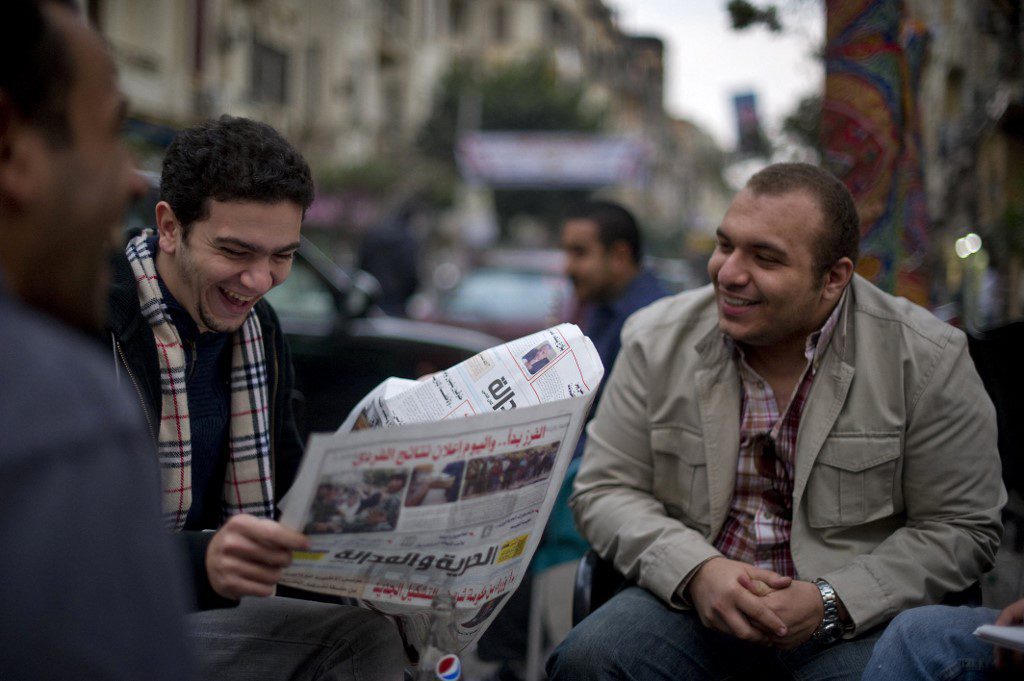
Hakim Marzouki
In the 1930s and 1940s of the last century, the Egyptian newspapers published articles about corruption and attacked King Farouk himself. Some journalists have even gone further and sneaked into his bedrooms, opening the drawers of his private cabinets.
All this happened before the eyes of the king. One day, he threw the newspaper aside and asked his prime minister Al-Nahas Pasha what should they do about such an infringement. Al-Nahas Pasha answered him with clarity, coldness, and confidence: Your Majesty, you may complain to the court. There is nothing you can do except going to court.
Such a thing happened in the 1940s in Arab countries, not Sweden, Denmark, nor the Netherlands. At that time, our societies were heading towards the modern state. They wanted to get out of the swamp of illiteracy and poverty. To my knowledge, we have not heard about an incident like that in our time. And if it happened, who can tell us about it, and who would benefit from that?
I read this piece of news to my friend from an old newspaper. It was worn out, yellow in colour, and unpretentious in print. However, it exudes freshness, brightness, professionalism, and neutrality. So he said: “Today, we need more than six decades of walking backwards to reach this behaviour.” Interestingly, I did not have a response to his argument.
To avoid throwing all blame on the governments of the independence era and treat them all the same, we have to say that some of them made a lot of effort. These governments achieved so little due to internal and external obstacles. Nevertheless, it will be naive to believe that the current Arab governments do not know the three powers (legislative, executive, and judicial). They are also aware of the independence of the fourth power, which is journalism and the media. These governments are aware of the seriousness of this concept that threatens their privileges. Therefore, they try to combine the authorities as judge and opponent at the same time. The governments add journalism to that. They seek to hire a lot of its pens and screens for their interests. After that, they close the square, except for what is hovering around as breathing margins and decorations, on the principle of “It is better to scare a wolf than to kill it” or “the shepherd won’t be hungry, and the sheep won’t perish” in the best of cases.
But if the stick wins over the carrot, you will see the mouths silenced, the prisons overcrowded, newspapers, screens, and broadcastings are one exact copy as if the pens turned into lipstick.
Albert Camus said: “The Journalist is the historian of the moment, and history is made of moments.”
The relationship between journalism and the rest of the authorities is the compass. This relationship is candidness that sometimes reaches arrogance. It is like obstinacy and reaches prejudice and defending falsehood at other times.
Tell me, do you read? What do you read? How do you read, and who writes what you read? Tell me that, and I tell you who you are.
Independent media does not make a fool out of you. Instead, they will allow you to participate in decision-making because “news is sacred and opinion is free” as the advanced journalism gurus and its brave “barons” say, those who raised governments and brought down others with their explicit pens in developed countries.
Journalism is the link between the ruler and the ruled in civilized societies. It is a barrier between the two for our people who got used to those addicted to lying to them until they became like the lying shepherd in the famous story, they even don’t trust the weather forecast anymore. God have mercy on your soul, O Minister that advised his king to file a lawsuit against honest journalism in a society that trusted the judiciary.
Whenever I travel to a democratic country, I immediately buy a newspaper. And whenever I visit a country from the third world, I scramble to hear the rumour, or what is known as alternative journalism. However, some countries finance journalism, do not read it, or even expect it to be praised by it like the saying “I give you money, not to praise me, but so that you do not insult me”.
DISCLAIMER
The opinions expressed in this publication are those of our bloggers. They do not purport to reflect the opinions or views of Fanack or its Board of Editors.


